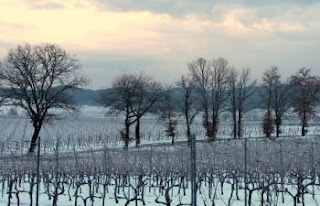Mark Zuckerberg lives in my neighborhood (although, believe me, my house is nothing like his). Meg and I passed him and Priscilla Chan out walking one night, and we all nodded and said hi just like any neighbors. Larry Page is rumored to be building a house not far away, near where Steve Jobs lived, I think. My son’s chess teacher (really more like a chess philosopher) was a mathematician at Stanford and an early mentor to Page and Sergey Brin. He called them “those boys.” It’s not surprising, I suppose, that having been exposed to these people this way, they seem to me like regular folks. Of course I don’t really know them, but nodding sidewalk neighbors and “those boys” don’t seem like they could be bad guys.
I was early on Facebook, long before they went public. I have always been a huge fan of Google. And Apple. Tech holds a place in my heart and soul like volcano gods for early man. Beautiful, exciting, occasionally a little frightening. For years it’s been obvious how Google could be dangerous, but so far they seem to be toeing an acceptable line, giving us all tremendous benefits of accessibility to knowledge without obviously high costs. Or perhaps I’m not fully up to speed on the costs of having Google in our lives in such an intimate way.
But this post isn’t about Google, it’s about Facebook.
Early on, Facebook seemed to be just what it was originally designed to be: a social hang out. It’s been nice for me. I’ve been able to keep up with friends, old and new, with whom I would otherwise have lost contact. We chat, I see what they’re up to, how their kids are growing up, etc. No downside to all that, right? No cost, right?
Now we learn, courtesy of Cambridge Analytica’s exploitation of Facebook’s members’ information, that there most certainly is a cost. I do not approve—I repeat, I do not approve—of being part of any shenanigans to hijack an election for a man like Donald Trump, or anyone else, for that matter. That’s not why I signed up for Facebook.
So I did what I have done in the past, but with more earnest effort this time: I adjusted my privacy and sharing settings on Facebook. The Facebook settings are a thicket of such density and thorniness that one has to wonder if they have not intentionally been made difficult to hack through in order to discourage users from limiting what Facebook can do, and permit to be done, with their data.
Facebook is not a charity, I understand that. It needs to make money. I’ve been naive, I guess, about how their machine works; if we can believe their public protestations of innocence, so have they.
When I’m naive, it’s dangerous to me. What a company like Facebook is naive, it’s dangerous to our democracy. That is not an acceptable cost for being in a social club.
I loved it when Facebook was the platform to spread the word of the Arab Spring. I love that they want to bring the internet to underserved places in developing countries. In their best moments that can seem like a modern Marshall Plan, fostering democracy, prosperity and goodwill around the world.
But here in their home country, they have let us down. They have, guilelessly or not, permitted themselves to serve as a massive platform for misinformation and trickery.
I would hate not to keep up with my friends. (Maybe we can all use Instagram.) I’m just not sure I can continue to be a part of a platform that can be so easily turned against our most fundamental interests. We’ll see. In the meantime, maybe “those boys” at Google can help Mark figure out how to clean up his business model.

